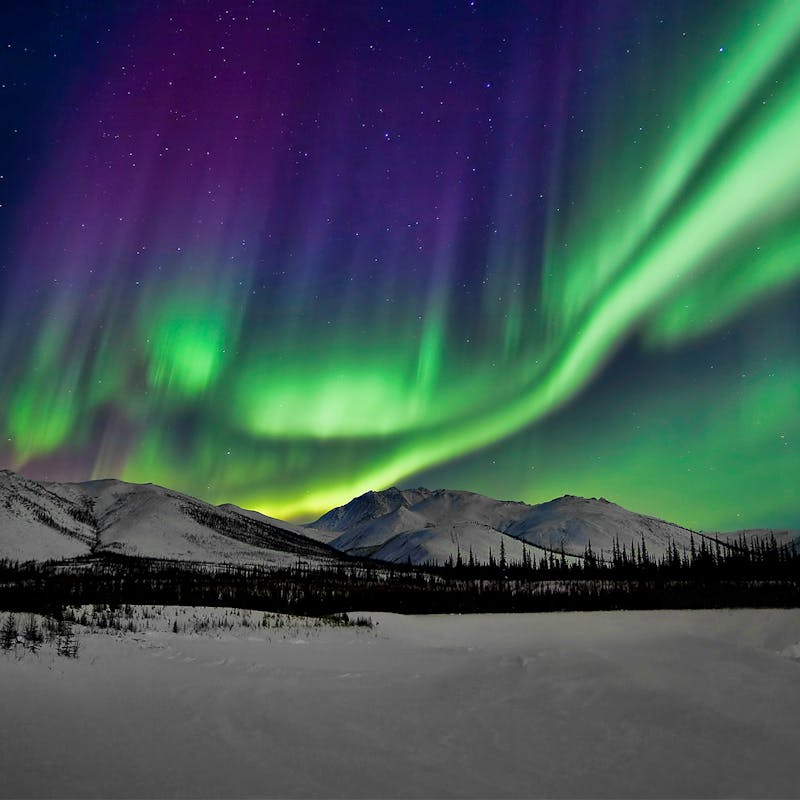The Bureau of Land Management (BLM) has issued a final plan to lease the coastal plain of the Arctic National Wildlife Refuge to the oil and gas industry. This plan comes just hours after the House of Representatives passed HR 1146, which restores protections against drilling on the refuge. The agency’s destructive, unlawful plan would sell off one of America’s last great wildlands to the highest bidder. The plan would offer almost the entire 1.5 million-acre coastal plain for oil leasing, including huge expanses of designated critical denning habitat for the threatened Southern Beaufort Sea (SBS) population of polar bears. The SBS population has declined dramatically and is the most imperiled polar bear population on the planet.
Jamie Rappaport Clark, Former president and CEO of Defenders of Wildlife, issued this statement:
“This Arctic National Wildlife Refuge leasing plan is another disgraceful example of the Trump administration’s continued rejection of environmental law, sound science and the wishes of the American people in protecting wildlife and wild lands. Selling off the entire coastal plain for oil development presents an existential threat to threatened polar bears and is opposed by 70% of Americans.
“Driven by its energy dominance agenda, this administration is relentless in its mission to sell off the Arctic Refuge to Big Oil, regardless of the cost to imperiled polar bears, the Porcupine caribou herd, hundreds of migratory birds and the Gwich’in people, who have depended on these resources for millennia.
“The Trump administration’s plan to sell off the Arctic Refuge is categorically illegal in its failure to protect wildlife, Native cultural values, and the many other outstanding resources and public values on the coastal plain. We will not tolerate the administration’s brazen attempt to paper over the impacts of this disastrous proposal, and we will see them in court for this reckless effort to turn this iconic American landscape into an industrial oilfield.”
Background
Arctic Refuge Drilling Threat
• The BLM is has finalized its planning process to establish an oil and gas leasing program on the Arctic Refuge coastal plain, with the goal of selling out these wildlands to the highest bidder in the coming months.
• Legislation seeking to open the coastal plain to oil and gas development had been defeated for decades as Americans and Congressional decisionmakers have long recognized the value of preserving the Arctic National Wildlife Refuge. But iIn December 2017, under the pretense of generating revenue to offset the $1 trillion cost of the “Tax Cuts and Jobs Act,” Congress authorized drilling in the Refuge, circumventing full and fair congressional debate on the question.
Risks of Oil Exploration and Development
• The 1.6 million-acre coastal plain, where exploration, leasing and drilling would occur, is the biological heart of the refuge. Fossil fuel development would destroy the wilderness character and wildlife values of this vital landscape, turning it into an industrial oil field and threatening the species that depend on it.
• The coastal plain is the traditional calving and rearing ground of the spectacular Porcupine caribou herd, which numbers nearly 200,000 animals. The indigenous Gwich’in people of northeastern Alaska and Canada have depended on the herd for their subsistence and cultural identity for millennia. The Gwich’in strongly oppose oil drilling in the coastal plain. They revere this area as “The sacred place where life begins,” due to its importance to the caribou.
• Approximately 77 percent of the coastal plain is designated critical habitat for threatened polar bears, which are increasingly coming ashore to den and raise their newborn cubs here due to the climate-driven loss of sea ice. The Southern Beaufort Sea population already numbers as few as 900 individuals, having suffered a 25-50 percent decline from previous estimates. Seismic testing during polar bear denning season could frighten mother bears from their dens, leaving cubs to perish. The 90,000-pound seismic vehicles could even run over dens, crushing bears to death and contributing further to the species decline.
• Industrial oil development would turn pristine habitat into a steel spiderweb of pipelines, airstrips, drill rigs, roads, gravel mines, buildings and other infrastructure. Oil spills, leaks, and pollution could irreparably damage refuge ecosystems, upsetting ecological processes and imperiling the iconic and sensitive species that call this special place home.
Why We’re Fighting for the Arctic Refuge
• Located in northeast Alaska, the Arctic National Wildlife Refuge comprises approximately 19.6 million acres of public lands and waters. It provides vital nesting habitat for hundreds of species of migratory birds from all 50 states and six continents; the most important onshore denning habitat for threatened polar bears in the United States; spawning streams for Dolly Varden and other valued fish species; and room to roam for caribou, wolves, muskoxen, Dall sheep, arctic foxes and many other wildlife species.
• Much of the Arctic Refuge was first protected over half a century ago by the Eisenhower administration to preserve its unique wildlife, wilderness and recreational values. In 2015, the U.S. Fish and Wildlife Service recommended congressional wilderness designation for the Coastal Plain.
• Industrializing America’s most iconic national wildlife refuge is extremely controversial. According to 2017 polling, 70 percent of American voters oppose drilling in the refuge.
For over 75 years, Defenders of Wildlife has remained dedicated to protecting all native animals and plants in their natural communities. With a nationwide network of nearly 2.1 million members and supporters, Defenders of Wildlife is a leading advocate for innovative solutions to safeguard our wildlife for generations to come. To learn more, please visit https://defenders.org/newsroom or follow us on X @Defenders.
Media Contact
News

Colorado Releases Wolverine Reintroduction Plan, Defenders Stands Ready to Support



